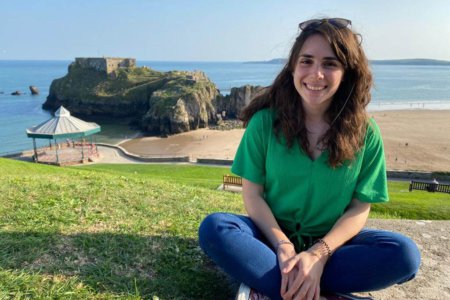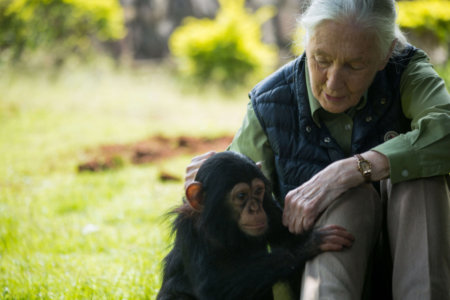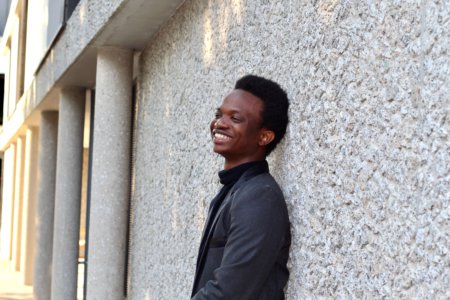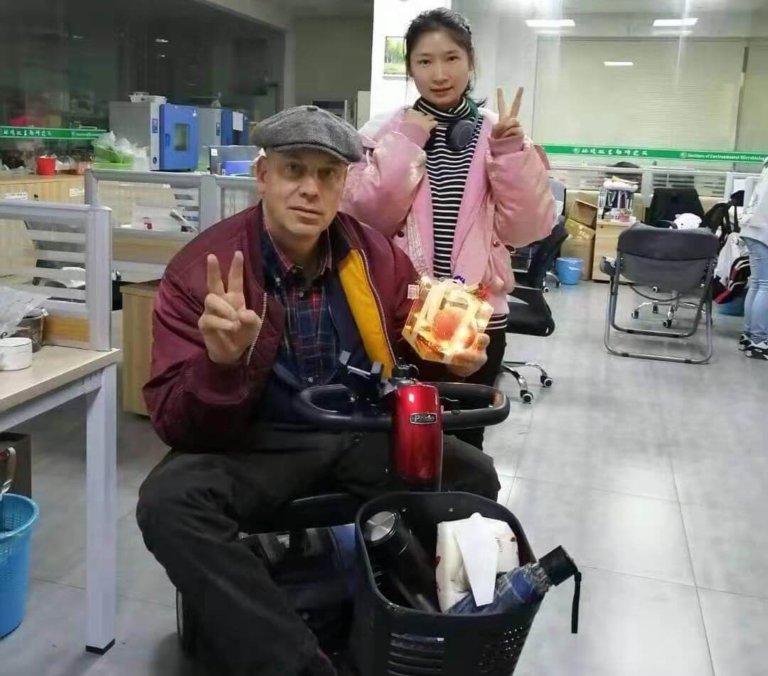
As China leaps ahead in science, talents like PhD in Microbiology graduate Christopher Rensing are switching lanes from the old lands of opportunity like the US or Europe and going east. Although the German-American still believes the US is furthest ahead when it comes to accessibility, Rensing is choosing to make a global impact on science as a distinguished professor at Fujian Agriculture and Forestry University (FAFU).
Facilities and funds available to China’s top scientists now rival many good universities in the west. Here, Rensing gets to lead his own research group at the Institute of Environmental Microbiology. Last year, he received the Fujian Friendship Award, one of the province’s highest awards for foreign experts who contributed to its economic and social progress.
There’s another perk: support for his degenerative neuropathy that affects his lower limbs. Members of his research group treat each other like an “extended family,” he says, including helping him get around the campus and city, when he can’t. When one of his students was diagnosed with leukemia, Rensing was by his side during treatments.
He’s currently in the US now due to COVID-19 travel restrictions, but Rensing can’t wait to return to his research group in China at the soonest possibility. We caught up with him via email to learn more about what sparked his journey to China, how support for people with disabilities are progressing, and his 10-year plan.
Why did you pursue your PhD in Microbiology in Germany? Is there a particular backstory behind this?
I had many different interests during my work on Drosophila genetics (genetic model to study simple and complex behaviours) for two years, but I liked my fellow students who went on to join the graduate programme in microbiology.
I guess you could say it was a strong, competitive programme which is what attracted me. In my opinion, a well-funded lab with the possibility to learn many different techniques would still be my suggestion or advice to new graduate students.
Tell us more about your extensive career trajectory since graduating. What drew you to China?
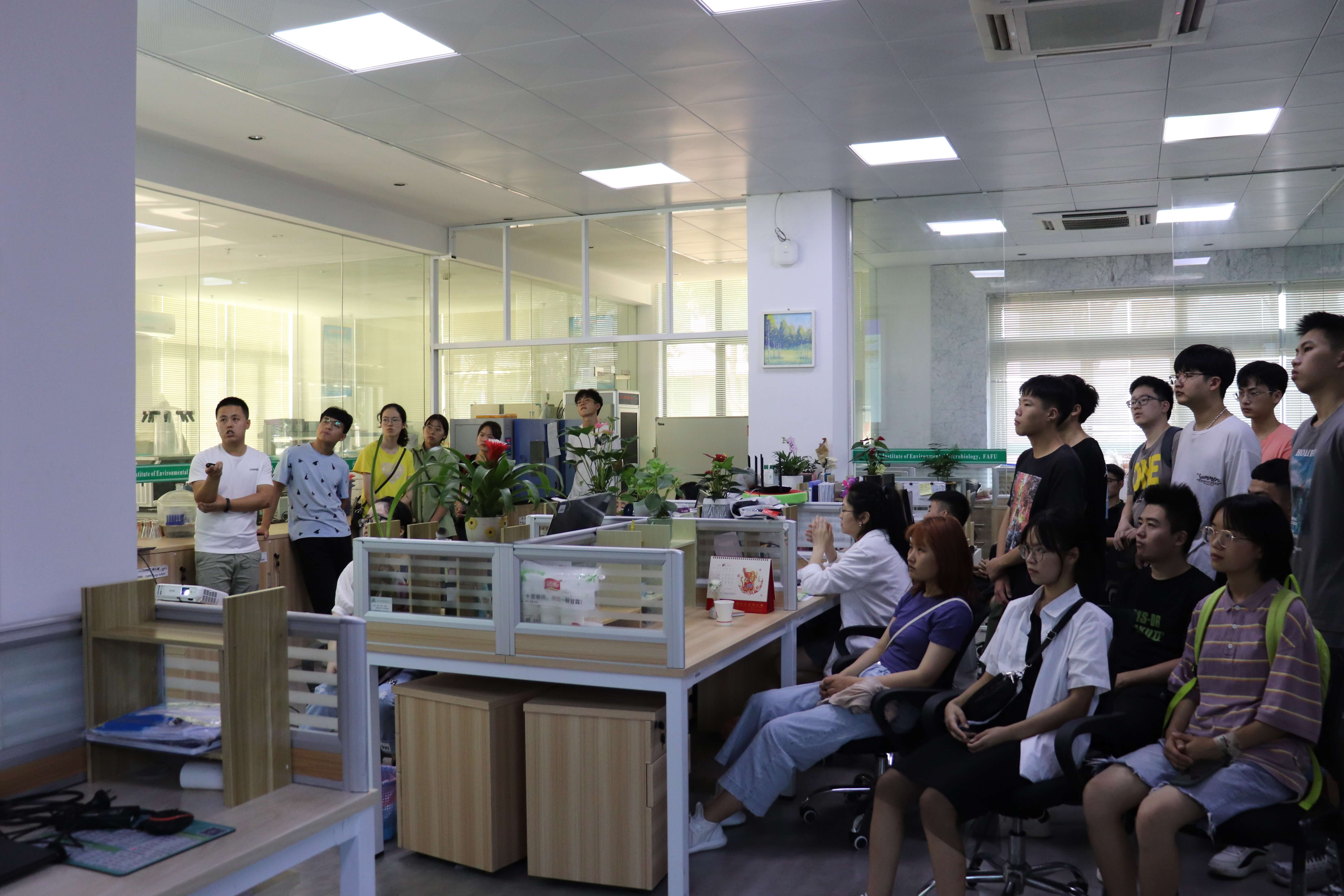
Last year, Rensing received the Fujian Friendship Award, one of the province’s highest awards for foreign experts who contributed to its economic and social progress. Source: Christopher Rensing
After my postdoc in Michigan, I was offered an assistant professorship at the University of Arizona. Since I had already worked with a lot of Chinese students then, I hired mainly Germans and Chinese as postdocs because I had the best connections to good labs in those countries.
That’s how I became more familiar with life and science in China. In 2013, I accepted a visiting professorship at the Institute of Urban Environment, Chinese Academy of Sciences, Xiamen. It was here that I fully realised China’s investing capabilities into scientific research.
In 2016, I was offered substantial funding to build up my research group and head the Institute of Environmental Microbiology at FAFU. It was always my goal to head a large world-class research group and I was able to do so in China.
Walk us through your diagnosis with degenerative neuropathy. Do you think the world has progressed enough to support people with disabilities? What more do you think could be done, especially at higher education institutions?
Many things have improved when it comes to accessibility. Getting to class, the lab and the canteen is important for everyday life. I did not have any problems with that in all the places I have lived.
China still has a number of classrooms I cannot access, but things are improving. I do sometimes have to improvise to handle the unexpected. Of course, there are always moments of self-pity when I remember the times I was healthy and athletic.
The relationships in my research group are different from what I experienced in Europe or the US. In China, one views the lab more like an extended family, frequently spending long work hours and leisure together. For instance, we cook hotpot meals at my apartment and frequently cook in my room.
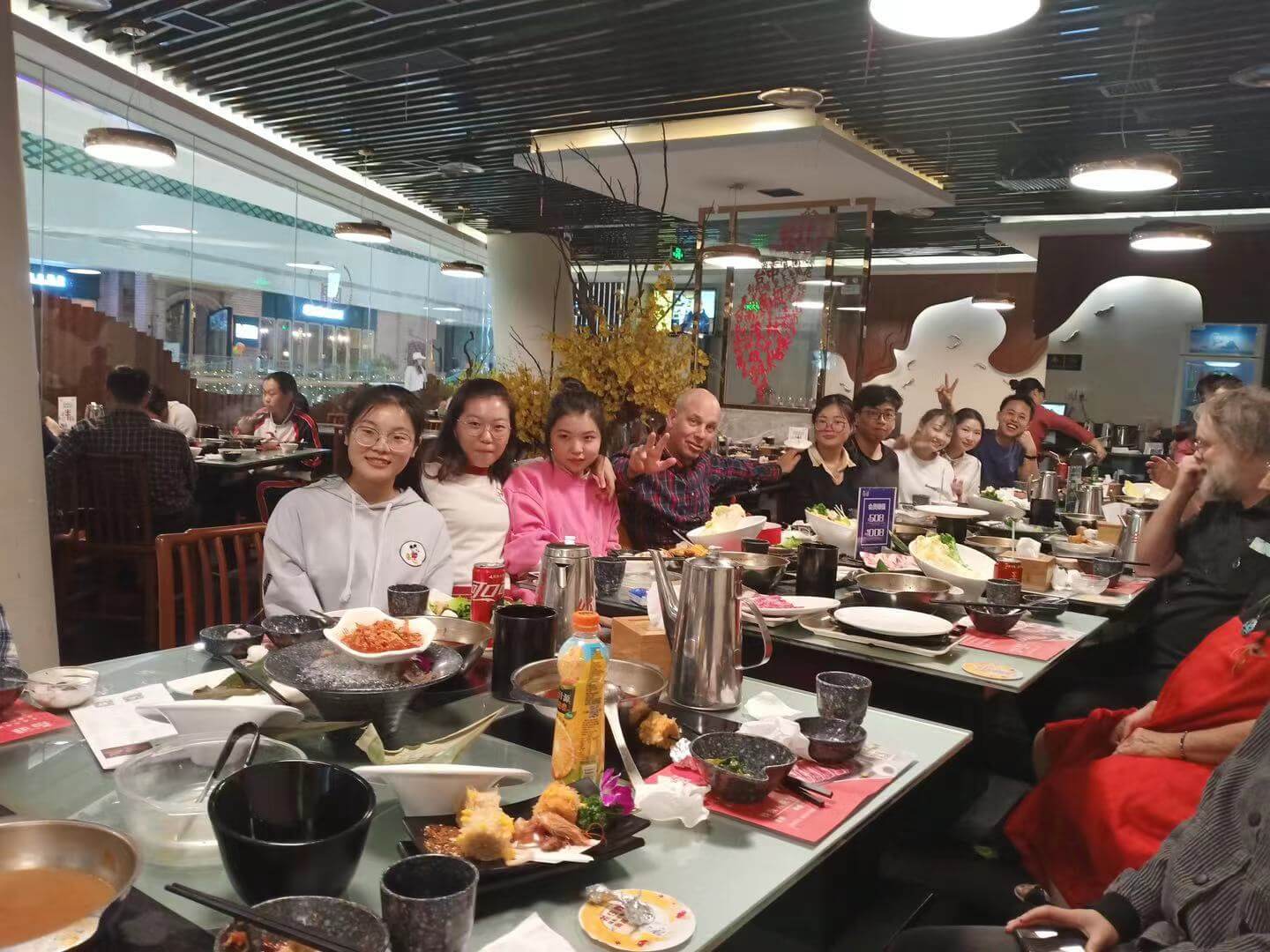
Members of his research group treat each other like an “extended family,” Rensing says. Source: Christopher Rensing Source: Christopher Rensing
Members of my research group have arranged for a car and driver who takes me where I need to go. I also have a mobility scooter that allows me to get around campus and the city. With my scooter, I am able to take the trains and get on flights when I need to.
In addition, I have a network of former postdocs and graduate students who now have faculty positions or own companies around China. There, I am viewed as a respected teacher (令人尊敬的老师)which makes me thankful for their continued loyalty throughout many years.
What skills and knowledge do you like to teach your students?
I hope I can teach my students to be resilient. Life is not always fair, there will be victories and losses with every person. I am pleased to provide support to other disabled students and hopefully will be able to assist them in pursuing their dreams.
One of my graduate students was diagnosed with leukemia and had to undergo extensive treatments. Luckily, he recovered and I was there during his treatments giving him moral support. He told me he took courage from how I handled my life with my disability — this greatly touched me. I’m committed to helping other people who struggle with disabilities because we are naturally more willing to share the unpleasant experiences about our lives among ourselves.
What skills or knowledge do you wish you had learned more during uni?
I would say teaching. Teaching has been quite a journey for me. After obtaining my PhD in Germany and completing postdoctoral training at Wayne State University, I have started teaching various courses as an assistant professor at the University of Arizona.
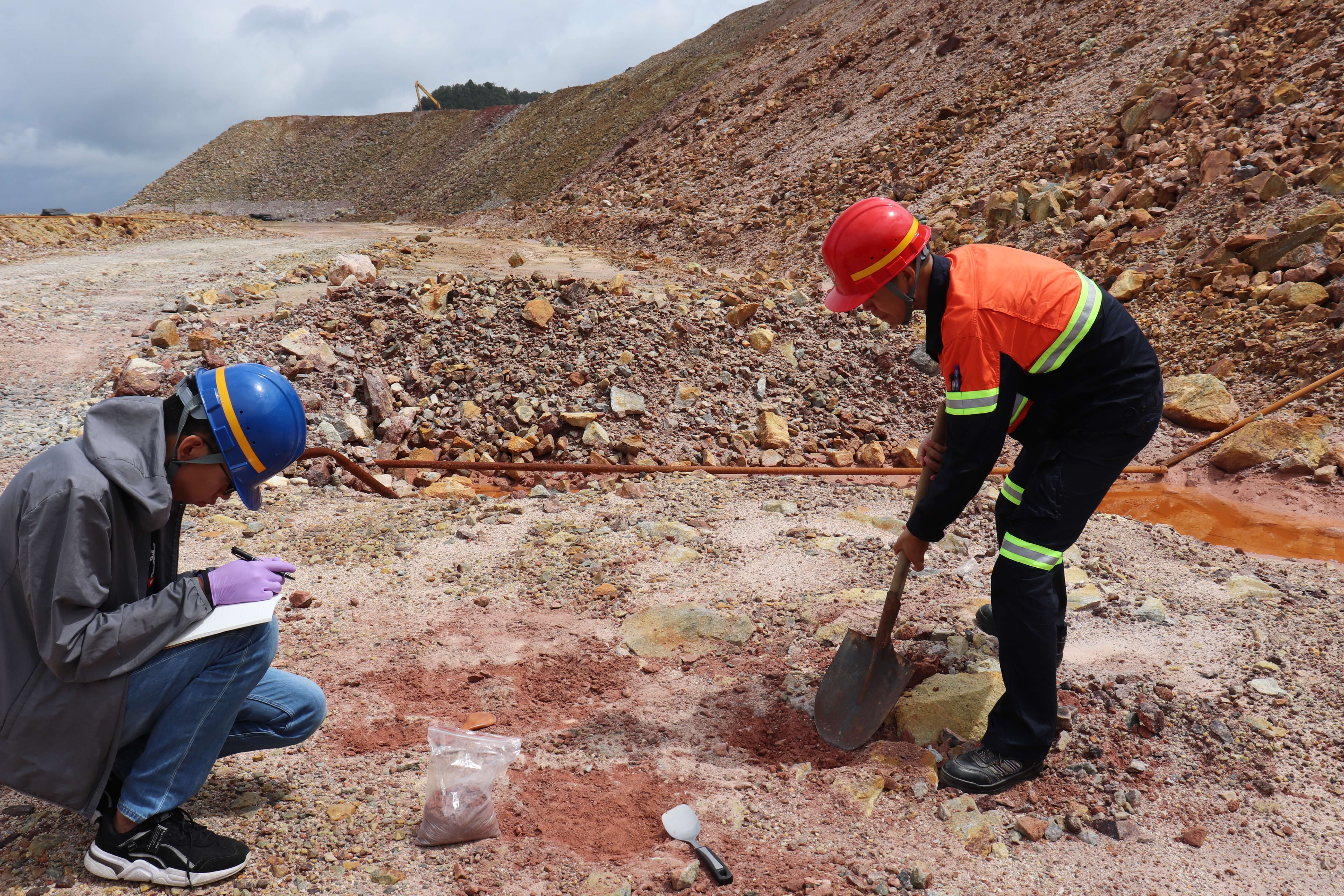
Rensing often reminds his students of the importance of resilience. Source: Christopher Rensing
From the very beginning, I quickly realised that there are certain differences between European and American and now Chinese education systems. I need to incorporate certain changes in my teaching style in order to meet all expected requirements.
In order to do so, I have attended various workshops attributed to a learner-centered education and I found it to be very helpful for optimising my teaching performance. In my opinion, the best result in any class teaching can be accomplished through a mix of lectures and guided activities.
Students’ involvement can be achieved through structured discussions. I often use this format when their assignment is to read and answer questions about a scientific paper. I also give them the option to summarise my lecture and ask for certain clarifications. From my experience, students responded much better to the class if they felt they had an input.
Do you have any advice for international students who are planning to enroll in the same courses as you?
The most important advice I can give international students: be flexible. Try to learn at least some of the language (if going to a foreign-speaking country) and become familiar with their culture. Members of my group always try to slow me down and warn me to not be afraid of anything. An affinity for adventure is probably a good trait when moving abroad.
In 10 years, where would you like to be living and what would you be doing?
I still like to discover new things, meet different people and gain life experiences. It is natural to slow down with retirement and concentrate on other interests though. For instance, I would like to find out more about the Jewish-German life in Breslau where some of my mother’s family is from.
I like reading books but would also like to still be involved in science, possibly as an editor. I do like the slower pace in Arizona. Not surprisingly, the state is a favourite among retirees.

“Be flexible, try to learn at least some of the language (if going to a foreign-speaking country) and become familiar with their culture,” advises Rensing. Source: Christopher Rensing
One last thing. Can you share some interesting findings from your research?
Research in my group focuses on metal-microbe Interactions and investigates how microbes interact with metals, metalloids and antimicrobial agents from the cellular to the ecosystem level. These interactions have implications for biogeochemical cycles and the spread of metal and antibiotic resistance genes. Additionally, they have medical relevance through their significance for human health.
Our group discovered and characterised ArsM, a key enzyme in organic arsenic metabolism. One of the products MMA(III) might be one of the first antibiotics produced by prokaryotes. Our work also pioneered a focus of predatory interactions when looking at the evolution of bacterial virulence with an emphasis on metal transport and resistance.
We have managed to describe many important transporters or metal(oid) transforming enzymes for the first time. These include: ArsM, ZntA, CueO and CusCFBA. The overall goal of our research is to elucidate the role of metals in virulence, biogeochemical cycles and microbial interactions with other microbes, plants, amoeba and the gut.








